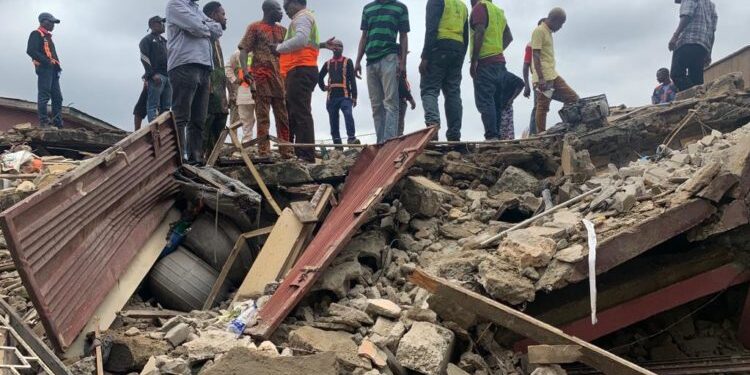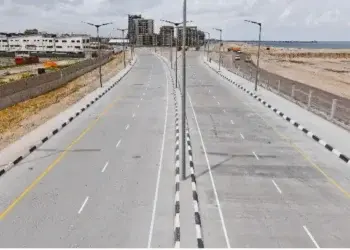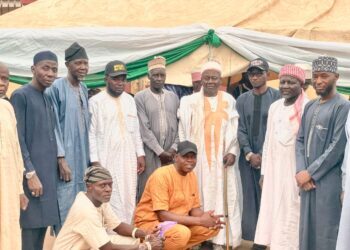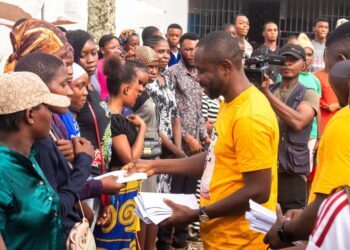The Council for the Regulation of Engineering in Nigeria (COREN), the regulatory body governing the practice of engineering has said that Nigeria recorded 22 building collapse between January to July 2024.
The President of COREN, Prof. Sadiq Abubakar made this known at a news conference on Wednesday in Abuja.
The news conference is themed,’’The Incessant Spate of Building Collapse in Nigeria in Recent Times-A Call for Sustainable Collaboration by All Stakeholders.
Abubakar said that from January to 14 July, alone, at least 22 cases of building collapse have been reported in Nigeria with Lagos accounting for 27.27 per cent, Abuja and Anambra 18.18 per cent each.
He added that Ekiti and Plateau followed with 9.09 per cent each and Kano, Taraba and Niger states accounted for 4.55 per cent each.
’’Records also showed that Lagos takes the lead in the incidences of building collapse.
’’As a matter of fact, over 91 buildings have collapsed resulting in the death of over 354 persons in Lagos from 2012 to date.
’’Similarly in Abuja, about 30 buildings have collapsed from 1993 till date resulting in the death of more than 64 persons and injury of many.
’’The most recent occurrences of building collapse close to DMGS Onitsha , Anambra state on June 12 and that of a school (Saint Academy)in Plateau on July 13 where 22 students died and 134 injured as well as the building collapse in Kubwa , Abuja.
He said that the incidences were worrisome.
According to him, this calls for deep reflection and collaboration of all stakeholders in stemming the tide.
’’While we commiserate with all victims and families, we want to commend the efforts of all emergency and security services for their prompt response at the time.’’
According to Abubabkar , the leading causes of building collapse varies from one location to the other.
He said some building collapse as a result of aging and from some investigations and researches conducted over time, use of substandard construction materials and structural failure were also responsible.
He said that other factors included :illegal change of use of buildings, illegal addition of floors, quackery, inadequate or lack of supervision and oversight.
He added other factors were faulty foundations or lack of conduct of soil/geotechnical investigation, sharp and corrupt practices amongst others.
Abubakar also commended the respective affected state governments for constituting a panel of enquiry to look into the various cases with a view to finding out the immediate and remote causes and preventing future occurrences.
’’This is not the time for apportioning blames or contest of superiority within the built environment but a time for all stakeholders to unite and proffer workable and lasting solution, particularly in the prevention of building collapses.
’’All professionals within the built environment have a role to play in this.
’’In this regard we have identified and categorised many stakeholders that we will be engaging shortly,’’he said
The President said that the proliferation of illegal miners even within residential areas as reported in some quarters was a danger to the structural stability of buildings.
He added that the council had therefore, urged affected states to take urgent steps to reverse the trend adding that it was also time to enforce the compulsory insurance of some building under construction.
Abubakar said that perturbed by the incessant and avoidable incidences of building collapse in Nigeria and loss of lives in recent times, COREN had deemed to make major moves.
He said that COREN had taken some steps in monitoring and prevention of building collapse by training and licensing Engineering Regulation Monitoring (ERM) inspectors.
Abubakar added that COREN had reconstituted its Council Committee on Engineering Regulation Monitoring (ERM) and added an additional role of enforcement to its responsibility in line with the amended COREN Act.
He said that COREN had constituted ERM&E Task Force at regional levels including Ibadan, Port Harcourt, Enugu, Kano, FCT, Gombe and Lagos among other steps to tackle buildingcollapse.











